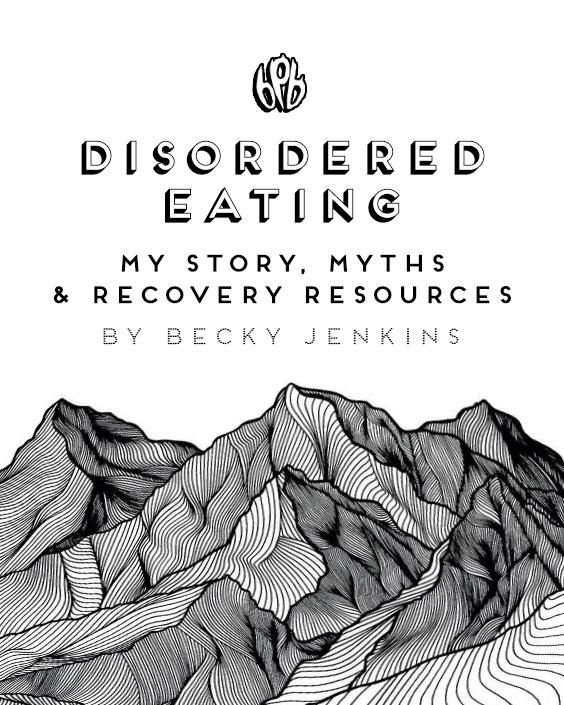
Disordered Eating. One Woman's Story, Myths & Recovery Resources
Written sometime in March 2018, Division Street, Portland Oregon.
I - The Story
I - The Story
Last night I had 3 friends in over for dinner in my bachelorette pad. It was a very cosy kind of night. It involved unpretentious homemade food and good records (will Childish Gambino’s Awaken, my love!” ever get old? shout out to my big bro for the best Christmas present of 2017) and of course, as all nights with close friends do, there was a lot of inappropriate jokes and laughter.
This probably sounds like a pretty good night to you too. Maybe not, maybe you’re into getting shit faced with a bunch of drinking-buddy type friends at the Bernard Shaw, getting chips at McGuinesses or something) and going back to some lads apartment on Pearse Street for some warm cans of Bavaria. No judgment, I like to do that sometimes too. (Also I know these references probably make the fact that I haven’t lived in Dublin for over 4 years very obvious, but you catch my drift)
But as mundane as this night sounds, it was kind of monumental to me, because when I went to bed I realized just how much I thoroughly enjoyed every fucking minute of that evening and night in my gaff, and I pondered the fact that I had zero regrets about skipping Friday workout to eat and hang out with friends in my workout clothes. I can’t say this was always the case. The previous decade of mine, while it may have seemed kind of perfect from the outside (think sound boyfriends, a law degree from Trinity and plenty of friends to go to I don’t know, music festivals with). However inside my head, it was a constant battle with a life consuming obsession with what I ate, how much I exercised, and what the number on the scale in every house and gym I ever entered said about me.

II - The Myths
II - The Myths
You can tell who has an eating disorder by looking at them
You can tell who has an eating disorder by looking at them
I never “looked like I had an eating disorder” is something I hear from people a lot. But let me tell you, the vast majority of people I have met who have suffered with disordered eating and body image struggles were neither extremely thin or extremely fat. Many of the painful behaviors which people suffering with ED engage in (binge eating, purging, compulsive over exercising, obsessing and tracking every ounce of food that passes their lips, etc.) do not necessarily result in physically noticeable changes to their body. This does not mean that these (sometimes obsessive) thoughts and behaviors pertaining to their bodies, their eating and their exercise are not unhealthy and extremely painful and difficult to live with or live without. Trust me.
Eating Disorders are only for women
Eating Disorders are only for women
First of all, the gender binary is silly, but that’s a story for another day. Men suffer with disordered eating and body image issues too, trust me, I’ve met a lot of them. It also affects trans people and people identifying beyond the gender binary at alarming rates. According to psychology today:

Eating disorders are only for young people
Eating disorders are only for young people
And its not just middle class, white teenaged girls, according to a survey done by SELF Magazine in partnership with the University of North Carolina “Sixty-five percent of American women between the ages of 25 and 45 report having disordered eating behaviors”, so that’s 3 out of 5 (i.e the majority of in that age range)

I don’t need to know or care about eating disorders
I don’t need to know or care about eating disorders

The above study demonstrates that disordered eating is extremely common. It’s a weird, and mostly silent epidemic affecting people of all gender identities, ages, social classes, etc. On a personal level, I will eat my fucking hat if no one you know is suffering with this stuff. Every class I have ever been in, and in every work place and friend group I have ever spent time in, I’ve experienced this. It’s rampant, and you can’t tell because 1) most people who suffer with disordered eating don’t “look like they have an eating disorder” (whatever that means) and 2) most people suffering from disordered eating don’t broadcast it, for so many reasons including social stigma, public misconceptions about eating disorders, shame, and more.
We live in a culture where hating your body and having an unhealthy and difficult relationship with food (especially as a woman or non-binary person) is the norm, not hating your body and having a sustained positive and healthy, or even neutral relationship with food, is, in my experience highly abnormal. Body image issues and disordered eating are in fact, the norm.

III - The Recovery
III - The Recovery
Where to fucking begin. Recovery is hard AF. However, it is so fucking worth it, because living with an eating disorder is very fucking hard too. I’m a little hesitant to say too much here because people are different, their eating disorders are different and recovery looks very different to different people. I’ll tell you a little about what it looked for me.
Individual & Group Therapy
A gentle warning. Finding a good therapist who knows about recovery is really fucking hard, at least it was in my experience. Diet culture and fat phobia is extremely pervasive and many therapists I worked with didn’t do much to help with my recovery, and some maybe even hindered it. Finding a therapist who you click with and trust is hard to do, but so fucking worth it. Don’t be afraid to shop around and “break up with therapists” who you aren’t vibing with, I shopped around with a lot and it paid off. Therapy is hard, but I learned a lot about myself and where my poor body image and anxiety around food came from, and it was so fucking cathartic and healing and worth it.
Therapy can be expensive, but there are cheap and free resources out there. If you are in college, I recommend using the free counselling service at your school. If you have health insurance, find out what might be covered by that. Alternatively look into free counselling/therapy services and groups in your community.
There are all kinds of recovery support groups out there which can be really helpful, however, again I would be careful about which groups you choose to be part of, as sometimes they can be triggering for people. Find what works for you.
Online therapy is also a thing now, I’ll get more into that in the resources section below.
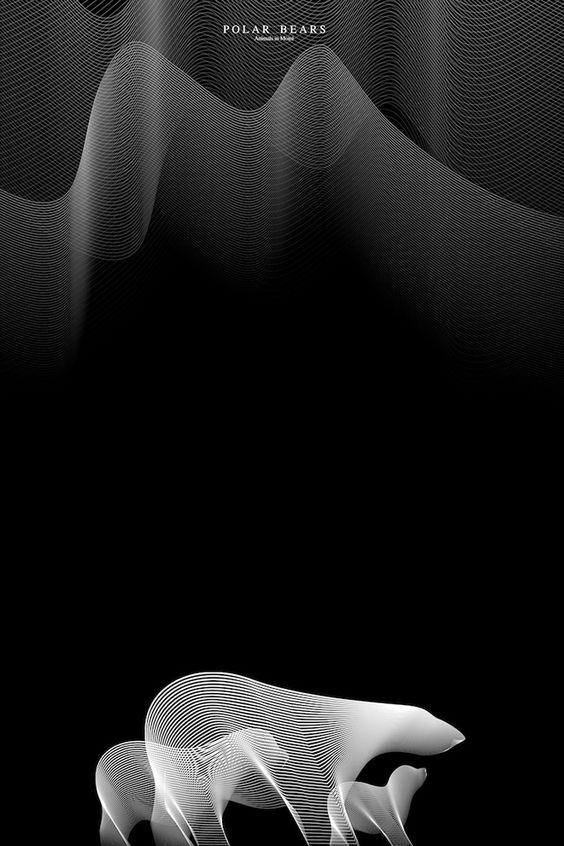

Friends & Community
If you can find folks who you feel like you can confide in, even if it takes some guts, I urge you to take a deep breath and do it. You might be surprised at how many people will understand and relate. However, a little warning: many people who identify themselves as “body-posi” or “in recovery” or even “recovered” espouse some fat phobic and diet culture based comments and advice, so be careful.
Self-Care
Depending on the kind of therapy you engage in, a lot of the “work” will likely happen outside of the therapists office. An example of this is one therapist who helped me realise and understand just how fucking chronically stressed out and anxious I was. She asked me what kinds of things I did that soothed my anxiety and we found a way to build more of those activities into my routine (think meditation, yoga, long walks with friends, etc, that’s what it looked like for me anyways)
Being in therapy helped me slow down and realise just how little care I was taking of myself, not getting enough sleep or rest, binge drinking, and an endless cycle of food deprivation followed by binging. I was also stretching myself way too thin with college, family obligations and my constant need to exercise. Generally speaking, I was just so fucking hard on myself in just about every aspect of my life.
And hey, this is just me, but maybe you should adopt a dog or a cat or another animal (if you have the time and money) they can bring so much fucking joy into your life and for me, my dog helps me battle this toxic diet culture we live in every day.


Medication?
Yo, I’m not a health care professional so I don’t know whether or not you made need medication. For me, there have been times in my recovery when I really fucking needed certain medications, and times when I did ok without them. All I will say here is to keep an open mind and work with professionals who you trust. For me, a combined approach of therapy, lifestyle changes and meds has been pretty fucking effective, but everyone is different, obviously. I’ve had professionals in my life who were too quick to jump to medication as the only option and others who were so anti-medication that I questioned their objectivity as a mental health professional.
The only “cleanse” you need is a content cleanse
This one was huge for me. Unfollow all of the accounts on Instagram that make you feel bad, don’t read magazines or watch TV shows that promote the idea that thinness equals happiness because spoiler alert, it fucking doesn’t. Find media that supports your recovery and spend time with people who support your recovery. If you have a friend who talks a lot about their diet, exercise or body in a way that is triggering for you, tell them you’d rather talk about something else, it’s probably better for both of you and for your friendship. There are so many cool books, podcasts and IG accounts that are body positive and support health at every size (HAES). Just beware that there is also a lot of people promoting diet culture nonsense under the guise of being body positive, just think critically about what body positivity really means. Is that “fitspo” account really body-posi? Is that girl who seems to subside 80% on smoothies really someone you want to model your life on? Some people are jumping on the #bodyposi bandwagon without really thinking about what is means to be in recovery or to be body positive.
Recovery isn’t always linear, or maybe it’s almost never linear. But it’s oh so fucking sweet.
Being an Ally
Even if you don’t suffer with this stuff (lucky you!) there are still things you can do to be an affective ally to those who do, and they’re probably hiding in your life in plain sight. Just think a little more carefully about the words that come out of your mouth and the things you post on the internet. Maybe try not to contribute to a culture that is obsessed with and glorifies thinness and “health” and bodies that look a certain way. Do you really need to comment on other peoples bodies and weight? You’ve probably got far more interesting things to talk about. If you’re concerned that a friend might be struggling with these issues maybe check in with them, see how they’re doing and offer some support.

IV - The Resources
IV - The Resources
I’m a firm believer that recovery looks different for different people, some people love individual therapy, some people can’t afford it or for other reasons might benefit from a group format, I’m not the authority on this issue. Some people love podcasts and are audiophiles, some people love to read, I don’t think there is any hierarchy when it comes to this kind of content, just try different things and see what works for you. (This last sentence is also pretty much my life philosophy, in general by the way)
Googling terms such as “health at every size” should lead you to tonnes of great resources online. The term “body posititve” will probably reveal a lot of content on Instagram, Twitter, etc. However I will warn you that some folks have hijacked this term online to try to sell you bullshit weight loss teas or show you potentially triggering “before and after” so search with caution. The list below is by no means exhaustive.

Books
I feel really conflicted about recommending specific books as some of the books that helped me in my early recovery, when I look back on them now, I see as being a little fatphobic. As someone who advocates a Health at Every Size Approach, I hesitate to recommend some resources that were at one point helpful. But here are some books I would recommend, some more wholeheartedly, and some with caveats.
· Ink in Water- Muffy Davis & Jim Kettner
· Health at Every Size- Linda Bacon
· The Beauty Myth- Naomi Wolf
· Hunger, Hope & Healing- Sarah Joy Marsh
· Intuitive Eating- Evelyn Tribole & Elyse Rech

Websites & Blogs
· BodyWhys (to be honest, this is where I would start, if I were you, especially if you live in Ireland!)
· NEDA

Instagram Accounts
@MEEEE JK not really but actually yes please follow me @beckyjenkinsirl for pictures of my life in recovery in Portland, Oregon featuring my dog, vegan food porn and occasional selfies. Maybe even DM me. I’m nice.
@beauty_redefined
@projectheal
@nourishandeat
@bodyposipanda
@NEDA
Searching #haes #healthateverysize #decolonizebeautystandards etc., may reveal some cool content too.

Groups
There are all kinds of recovery support groups which can provide a free or low cost means of support in your recovery. Eating disorders can be very isolating and groups can really help break out of this, however again I advise you to proceed with caution, as a poorly moderated group can also be a triggering environment. As for Overeaters Anonymous, the recovery group of choice for many folks around the world, I have some very mixed feelings about this program and personally, as someone who received some benefit from OA but ultimately decided to leave, I hesitate to recommend it.
Other
If you’re in Ireland, I recommend checking out “Body Whys” & “Endangered Bodies Ireland”
Online Therapy
It’s a thing. I don’t have much experience with this but I just wanted to point out that it is an available option for folks who for whatever reason, may not be able to engage in in-person therapy.
Yourself
I know people talking about “self-care” is really annoying, but I cannot emphasize enough just how crucial taking good care of myself has been in my recovery. Self-care looks different for everyone. For me, sometimes it’s giving myself an extra couple hours of bed, taking a bath, a walk with friends, or staying in and ordering pizza in my jammies. Sometimes it’s cancelling plans that I am way too exhausted for, sometimes it’s giving myself an extra nudge to go hang out with friends, even when I’m feeling lethargic and anti-social, it depends. To be honest, sometimes it’s going out dancing until 3am. More than anything it has just been a journey of becoming more mindful of my needs, physically, socially, creatively, sexually, whatever. We’re all “needy”, its just part of being human, and sometimes just slowing down and taking care of yourself in a culture that tells you to “work hard, play hard” etc, is the most radical and defiant act you can do, and it feels pretty good.
Peacing Out
Anyway, I love you all and please feel free to reach out to ya girl on Instagram or Twitter or whatever, slide into my DM’s. You’ll find me @Beckyjenkinsirl. I’m literally going to go get vegan* donuts with two of my best friends in the world right now and Imma feel approximately zero guilt about it, a poetic way to sign out, right? And then later I’m going to walk my dog and take a yoga class, not because I need to “work off the doughnut” but because moving my body feels good and my dog loves walks and it’s a good opportunity to listen to Invasion of Privacy by Cardi B. I told you recovery was sweet.
Fin
*I’m vegan for ethical reasons, so I don’t eat, wear or use products with animal ingredients or those which have been tested on animals, this decision has nothing to do with weight, “health” or anything else. It’s not a diet or weightloss plan or anything aesthetically oriented like that.
This song has no relevance to anything I just put it here cause it's a banger xxx Conso


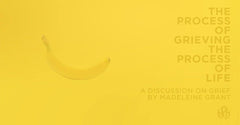
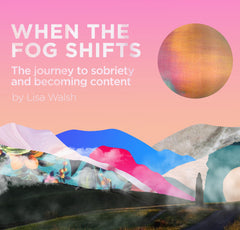
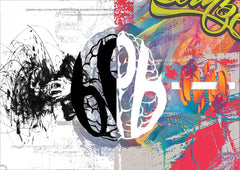
IdlHuehUCMpY
cqLxGEYyBDu
YgoODePbS
iXAwgCQZejrTvkI
NsJYFUuPzVBlIX
wklEGqeKjpvJnc
vyOpkGLD
UhkdXomnuqas
yUXtpqJBMoWeVw
EUToOWJDqwlCfL